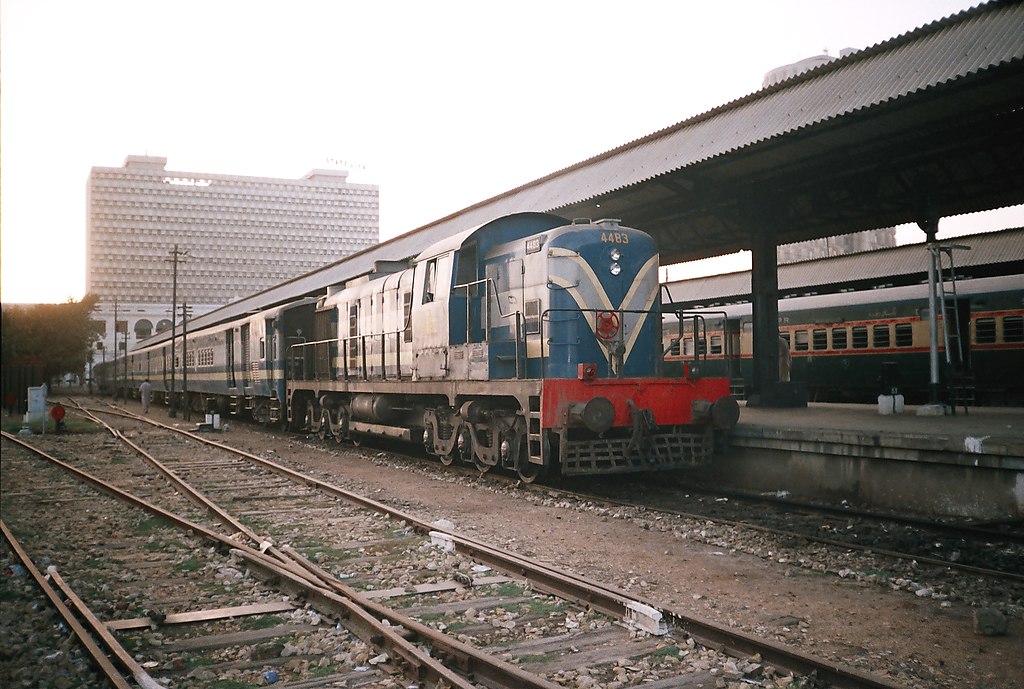PM Sharif is keen to see electric trains plying the bustling port-megacity in four years. Can Shehbaz speed deliver where all previous rulers failed?
By Muhammad Ali
ISLAMABAD: Past rumours of its imminent return have been greatly exaggerated, but stars may finally be aligning for the construction of Karachi’s much-delayed circular railways – this time under the umbrella of the China-Pakistan Economic Corridor (CPEC).
The word here in the federal capital is that Prime Minister Shehbaz Sharif wants the framework agreement for the PKR 292 billion project to clear the CPEC’s Joint Cooperation Committee (JCC) ahead of his visit to China, now merely days away.
China’s foreign ministry said on Wednesday that PM Sharif is due to visit China as of November 1, 2022 at Premier Li Keqiang’s invitation. The JCC is expected to hold its next meeting prior to that date.
The Planning Commission’s Central Development Working Party (CDWP) cleared Karachi Circular Railway Project (KCR) worth PKR 292.389 billion during its meeting held on Tuesday under the chairmanship of Federal Minister for Planning Development & Special Initiatives Professor Ahsan Iqbal.
Deploying electric trains and operational 17 hours a day seven days a week, the project is aimed at providing reliable, safe and environmentally friendly public transport to Karachiites. It is estimated to initially serve some 457,000 passengers per day, a number expected to soar to 1 million per day in future.
The economic benefits of the project are phenomenal in terms of saving vehicle operating costs, environmental protection, accidents and time savings, contribution towards promoting gender equality, and spill-over tax impact.
The project envisages construction of 44 kilometres of dedicated wide gauge track, starting from Drigh Road and passing through several city neighbourhoods including Gulshan-e-Iqbal, Federal B Area, Liaquatabad, North Nazimabad, Nazimabad, Sindh Industrial Trading Estate (SITE), and Lyari.
Thirty stations would be constructed under the project along the corridor covering the densely populated area of the city. The dual track urban rail mass transit system is expected to be constructed in a period of 4 years.
The scope of work includes construction of horizontal and vertical curvature, roadway/railway cross-section elements, ramp gradients, and layout of structures with respect to the alignment.
Also part of the package will be construction of stations; and installation of regulatory, warning, and passenger facilitation signs along with provision of other allied facilities.
The project is a part of an overall scheme of improvement of transport infrastructure. It covers road network improvement, provision of mass transit facilities, and better traffic management in Karachi, the most populous city of Pakistan and the capital of the province of Sindh.
The development of KCR as a modern urban railway will add to the existing public transport facilities in Karachi which have fallen short to meet the increasing demand over the last few decades due to the non-availability of modern mass transit facilities and the gradual dilapidation of large buses, all while the city continues to expand in population and urban area.
Minister Iqbal directed the concerned officials to immediately settle the issues in PC-1 and submit the report by Thursday.
Copyright © 2021 Independent Pakistan | All rights reserved




